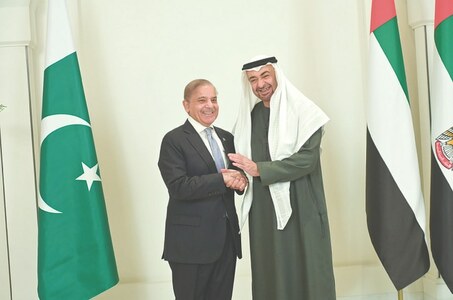WASHINGTON, July 20: The US administrator for Iraq, Paul Bremer, said on Sunday that as long as former Iraqi President Saddam Hussein is alive, his supporters would continue to attack US soldiers.
Two more US soldiers were killed on Sunday. The deaths bring to 151 the number of American soldiers killed in action since the March 20 start of the war, four more than the total killed in the 1991 Gulf war.
“I think it would be a lot better for us if we know that Saddam was either confirmed dead or was in our captivity. (His presence) certainly gives his bitter-end supporters an opportunity to say, you know, Saddam is still alive so we’re still working for his return,” Mr Bremer told the Fox News.
The US administrator said he believes Saddam Hussein was “probably still in Iraq located somewhere in the Sunni triangle, the area from Tikrit, which is his original home, south to Baghdad.”
“It’s this area where most of the attacks on US soldiers are taking place, he added.
Mr Bremer also acknowledged that there’s perhaps “some evidence of planning” in the rapid collapse of the Iraqi forces during the war. The Iraqi forces, he said, had apparently planned for “losing the war militarily and going into some kind of insurgency or organized resistance.”
“We certainly are seeing now organized resistance at small level, squad level organized resistance by trained soldiers,” he said.
He said members of the Fedayeen Saddam, Baathists and former members of the Republic guard were leading this resistance to US presence in Iraq.
Mr Bremer said that the United States needs to make some readjustments in the kind of troops it has in Iraq. “They can be lighter and more mobile. We don’t need a lot of tanks and heavy artillery there anymore. That war is over.”
The US administrator indicated that his administration would need US troops in Iraq for as long as the Iraqi resistance continues.
Mr Bremer insisted that despite the stiff resistance it is facing in Iraq, the US should continue to command the international forces based there. Giving command to the United Nations, he said, would not help.
“It’s hard to see how the United Nations can play itself a military role. One of the lessons of most of these posts — these transitions we’ve seen in Bosnia, Kosovo and so forth is the importance of unity of command. For the time being, all of the military forces are and I think should remain under American command,” he said.














































Dear visitor, the comments section is undergoing an overhaul and will return soon.